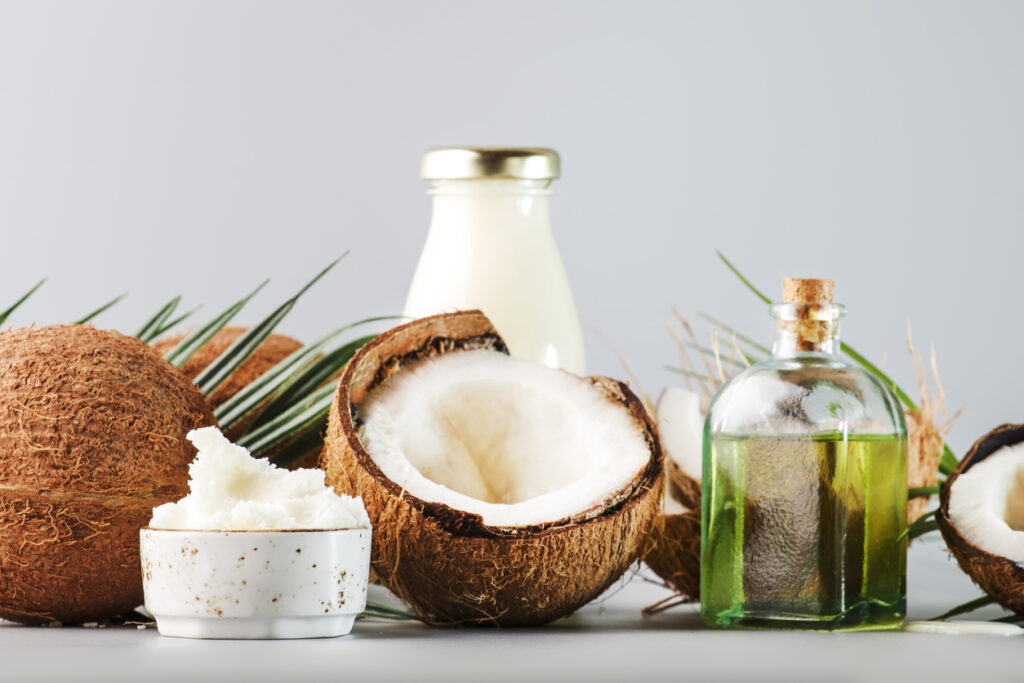Medium-chain triglycerides, or MCT, are a type of fat typically found in certain oils, most notably, coconut oils. Various companies have started to take these fats and make supplements which purport to miraculously help you shed pounds, boost your endurance while working out, increase mental agility and stave off dementia. Let’s separate the truth from the hype. Read on to learn more.
What is a Medium-chain Triglyceride?
Most fats in our diets are long-chain fatty acids, made up of chains of 13 to 21 carbon atoms. Medium-chain fatty acids have 6 to 12 carbon atoms and are processed differently by the body than long-chain fatty acids. Unlike other fats, they go straight from the gut to the liver. From here, they are used as a source of energy or turned into ketones. (You can learn more about the keto diet in our blog post here.) Then, the ketones can be used by the brain for energy instead of glucose or sugar. Since the calories in MCTs are used immediately, they are less likely to be stored as fat, bolstering the principle for the ketogenic diet.
Saturated Fats
A ketogenic diet has many benefits, but it does require planning and execution. Remember, there is no magic pill to health. A TH Chan Medical School survey found that: “72% of Americans rated coconut oil as “healthy,” though only 37% of nutrition experts agreed.” Nutrition experts are concerned about MCT oils because they are saturated fats. Coconut oil is 100% fat, with 80 to 90% being saturated fats.
According to Harvard’s TH Chan Medical School, “The predominant type [of saturated fat in coconut oil] is lauric acid (47%), with myristic and palmitic acids present in smaller amounts, which have been shown in research to raise harmful LDL levels.” Coconut oil does have “a chemical structure that mimics blood cholesterol, and may help to block the absorption of cholesterol in the body. However, the amount found in a few tablespoons of coconut oil is too small to produce a beneficial effect.”
What about Cultures with Low Heart Disease Rates?
A lot of studies point to low rates of cardiovascular disease for cultures that use MCT oils, like India, the Philippines, and Polynesia. But rarely is just one food item responsible for their great heath. According to Harvard’s TH Chan Medical School, “it is important to note that many other characteristics, dietary and other, could be explanatory. Also, the type of coconut products they eat are different from those in a typical Western diet. These groups do not [simply] eat processed coconut oil, but the whole coconut. They use coconut meat or pressed coconut cream, along with an indigenous diet of foods rich in fiber and low in processed and sugary foods.”
Again, the bottom line with a healthy diet is to resist the fads, and understand the underlying principles that give cultures their health. MCT oils can certainly be a part of a healthy diet, but are not the magic answer to health, in and of themselves.







